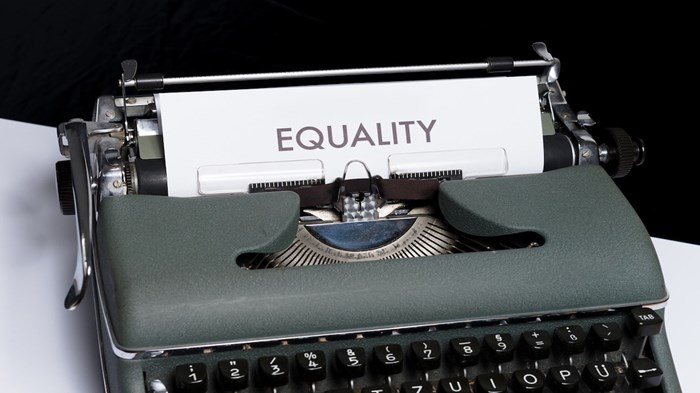American Harmony and Just Mercy

Just Mercy: How do Paul’s letters address the issue of mass incarceration and wrongful imprisonment of African Americans?
American Harmony, by Heather Hart
We have more computers than we have people in my house. We have so many devices it is easy to lose them. Where’s my iPad? And I can’t find my phone are frequent refrains. When the pandemic hit and brought our sons home for learning, we didn’t worry. We simply handed each of our kids a device and connected them to school. This ease of adjustment did not follow every child in America. By now we’ve now all seen images of kids huddled outside of fast-food restaurants looking for wi-fi or sitting on porch steps with no device available to them. The technology that pervades my house and the ease of accessing it is not equal here in America, the Land of Opportunity. There have always been the Haves and the Have Nots, often due to no fault of their own. Acknowledging the discordant inequality present today helps us grasp the lack of harmony in first century Rome.
In Colossians 3, Paul punches through the Roman façade of unequal status and power in relationships to show the true, heavenly reality: Christ honored with God. This truth upends the status quo and brings a new way of connecting. The world battering his listeners elevated few and subjugated many. The Have Nots were obligated to the Haves and received their identity from them. Paul affirms their true source for identity: Christ. Rome’s rules for identity and obligation are overturned. Instead, the Colossians are to be God’s holy people, full of love, and in harmony. Through Christ this is possible.
Who is responsible for breaking with the prevailing culture? As Paul gives guidance to both sides of these pairs of relationships, he subverts first century Rome. His instructions start with those considered the Have Not: wives, children, slaves. To these he gives little new direction for their conduct, they maintain behavior that is acceptable in first century Rome.[1] Paul does not place a burden for transformation on them, however he does redirect their identity and obligation. Paul elevates them by pointing to their true source: the Lord. It is Christ, no earthly person, who defines them. Though they are Have Nots in the status of their world, they are Christ’s holy people.
To those with the power in these relational pairs, Paul redirects their use of power to benefit and uplift others. Husbands, fathers, and slave owners are given the responsibility to think and behave differently. His instructions for love, gentleness, and impartiality upend Roman expectations for treatment of the Have Nots. The Haves must work toward reversal of worldly power and status in the heavenly Christian community.[2] The Haves must acknowledge they are not the source of identity that Rome declares they are.
Paul calls the powerful to accountability and humility. Paul elevates the vulnerable and dependent.[3] Every culture and society has structural relationships with power dynamics. America is not the exception.
The overt power structures of first century Rome have given way to an encoded hierarchy in America. We revere the idea that “All men are created equal…” yet our systems often work against that very equality. The criminal justice system is rife with examples. Bryan Stevenson, a lawyer working for the Have Nots entrenched in our legal system writes, “A system that denies the poor the legal help they need, that makes wealth and status more important than culpability, must be changed.”[4] Issues of mass incarceration and wrongful imprisonment reveal power structures designed to keep Have Nots vulnerable and dependent. If we were previously unaware of these injustices, it is due to the encoded hierarchy that we benefit from. We must realize who receives power and status in American culture. Insight from leaders like Brian is invaluable to Christians as we desire to live as Christ’s holy people.
Paul calls Christian leaders to be keenly aware of the power dynamics present in society whether it relates to wealth, race, gender, education, legal status, or any other aspect of life. Christian leaders are held responsible for uplifting those without power and challenging those with power to use it differently. Transformation for the vulnerable requires us to be self-aware and see what power we wield. When the Haves elevate the Have Nots we recognize the true heavenly reality and work toward harmony. May God’s holy people sing.
[1] Cynthia Long Westfall, Paul and Gender: Reclaiming the Apostle’s Vision for Men and Women in Christ (Grand Rapids, Michigan: Baker Academic, a division of Baker Publishing Group, 2016), 102.
[2] Ibid.
[3] Bruce W. Longenecker and Todd D. Still, Thinking through Paul: An Introduction to His Life, Letters, and Theology (Grand Rapids, MI: Zondervan, 2014), 232.
[4] Bryan Stevenson, Just Mercy: A Story of Justice and Redemption, First edition. (New York: Spiegel & Grau, 2014), 313.
Jesus Creed is a part of CT's
Blog Forum. Support the work of CT.
Subscribe and get one year free.
The views of the blogger do not necessarily reflect those of Christianity Today.




















